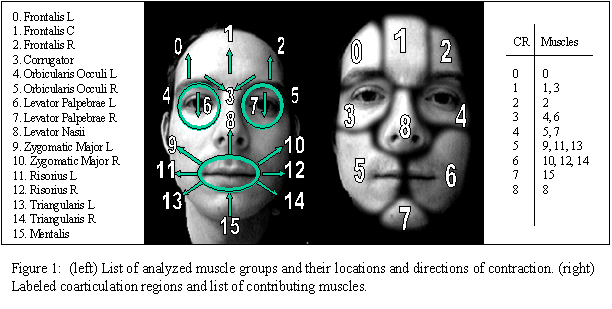
Submitted by TR on 11/29/02:
Facecrime
Here's how George Orwell described a facecrime in 1984:
It was terribly dangerous to let your thoughts wander when you were in
any public place or within range of a telescreen. The smallest thing could give
you away. A nervous tic, an unconscious look of anxiety, a habit of muttering
to yourself -- anything that carried with it the suggestion of abnormality,
of having something to hide. In any case, to wear an improper expression on
your face (to look incredulous when a victory was announced, for example) was
itself a punishable offence. There was even a word for it in Newspeak: facecrime,
it was called.
-- George Orwell, 1984
-------
And here's how it is being implemented today:
------
"We're teaching the computers to be more like human beings," said
Dave Schrader, an engineer with Teradata, a division of automatic teller machine
manufacturer NCR. In an attempt to give consumers a better banking experience,
Schrader is teaching ATMs to discern emotions.
How many times have you answered security questions at an airport and wondered, "Why in the world would a terrorist answer them truthfully?" Schrader said the emotion-scanning technology could act like an instant lie detector, tracking whether people become nervous or afraid as they answer the questions.
"Identifying people's reactions when they're asked questions — their nonverbal clues that skilled detectives might pick up on — we can train the computer to pick up on those, too," Schrader said.
http://abcnews.go.com/sections/scitech/TechTV/techtv_mindreader020530.html
----
Teradata, Schrader's organization, is also heavily involved in creating integrated government databases. Now your facecrimes can be linked in with all the other information the Ministry of Homeland Security and the Information Awareness Office keep on you. If you look displeased during certain government announcements (capture of a terrorist, for example), that information will be recorded and integrated into a government database. Your facecrime will be part of your Homeland Security profile.
--------
USC's (University of Southern California) cutting-edge Engineering Department, currently funded by Teradata, a division of NCR, is exploring important and useful ways machines can store, interpret and use human emotions. In this hi-tech world, many emotional expressions are universal such as happy, sad or confused. The engineering experts inside USC's Integrated Media System Department, have trail-blazed complex emotional mapping techniques. The information on your face is captured, stored and analyzed.
http://www.teradata.com/news/display.asp?dest=2675&type=ht
----
Teradata can turn your data into decision-making power by giving you an
integrated view that links every department from personnel and operations to
mission-critical activities. Imagine—a single version of the truth for
everyone across your organization—truth that can drive decisions and maximize
your resources. Teradata—with 20-plus years' experience in providing data
warehousing solutions to more than 1,000 industry and government organizations
worldwide—has already helped the U.S. Air Force, the U.S. Postal Service
and other federal and state agencies. Now, how can we help you?
http://www.teradata.com/solutions/government_industry.asp
----
Here's the lab page where this "research" is being conducted.
http://graphics.usc.edu/~dfidaleo/Emotion/
------
Imagine—a single version of the truth for everyone across
your organization—truth that can drive decisions and maximize your resources.